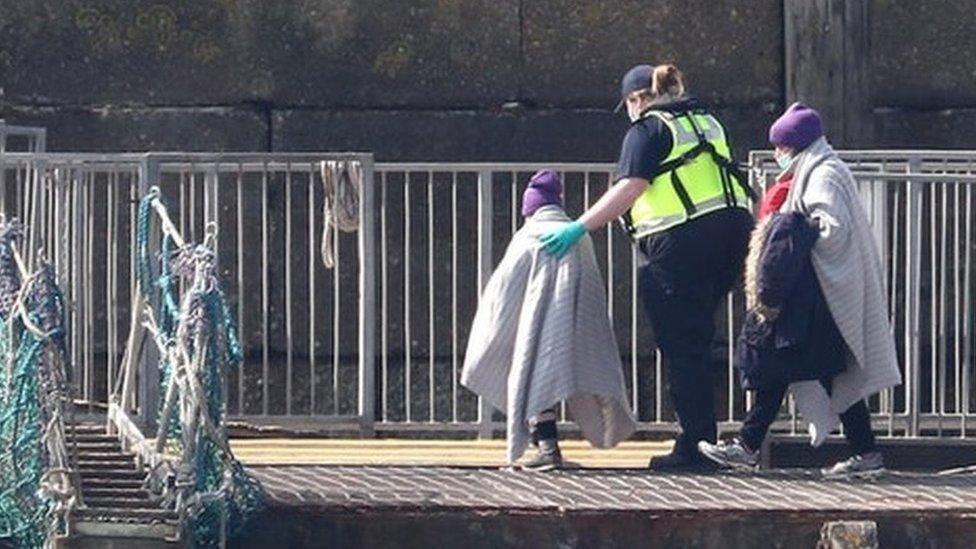Most young migrants are teenage boys, MPs told
- Published
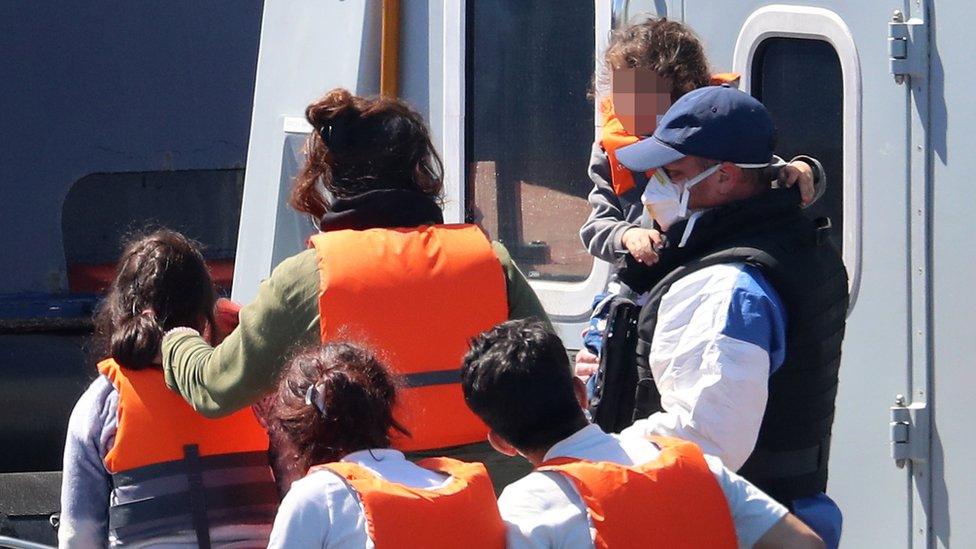
The number of children crossing the Channel in dinghies is rising, Kent County Council says
The majority of unaccompanied asylum-seeking children arriving in Kent are 16 and 17-year-old boys, MPs have heard.
Roger Gough, Kent County Council's leader, told the Home Affairs Committee 450 young solo migrants had crossed the Channel up until 14 August this year.
At the start of the year most were coming in lorries, but since lockdown most have come by small boat, he said.
About 10% of those are unaccompanied children, the council says.
Jenny Coles, president of the Association of Directors of Children's Services told the committee; "The majority of unaccompanied asylum-seeking children that have come in in the last few years are 16 and 17-year-old males, so the pressures have been on the care leaving services and supporting those young people."
She said the young migrants need a "timely decision" on their right to remain in the UK, "preferably before they reach the age of 18, so they are clear what's happening".
"Sometimes it take up to two years to get that decision."
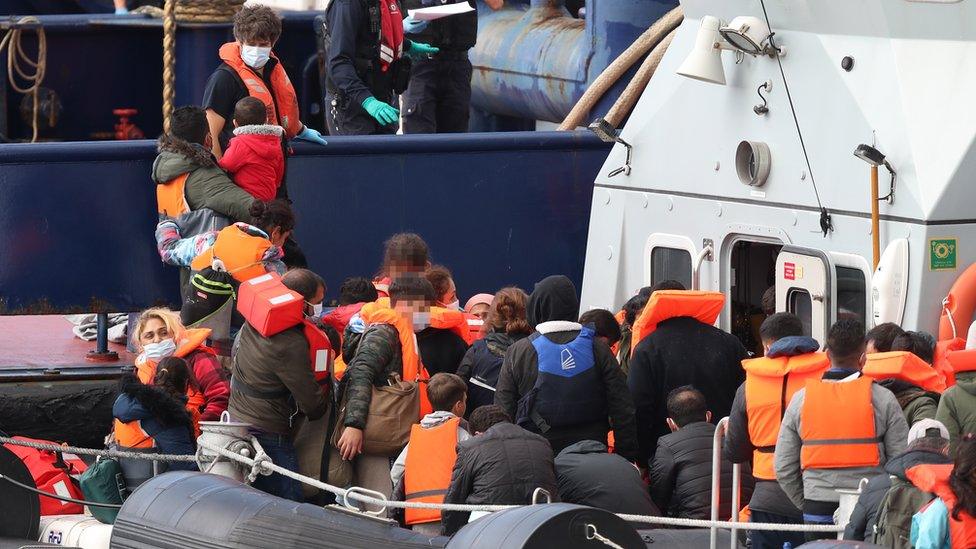
A record 416 migrants arrived on 2 September
Mr Gough told the MPs: "What we saw [after lockdown] was that small boat crossings to Kent became almost the only vehicle for a period by which many asylum seekers and particularly the unaccompanied asylum-seeking children reached this country.
Adam Holloway, MP for Gravesham, asked Mr Gough how nearly 1,000 young migrants had been able to make the journeys from Africa and the Middle East on their own.
"It's extraordinary for children to make quite such long journeys," Mr Holloway said.
Mr Gough replied: "There are clearly well established networks."
In August, Kent council announced it could not care safely for any more child migrants as the number of those arriving continued to rise.
Mr Gough told the committee: "As late as April we had about 40 coming into our care and then the numbers really increased.
"We were up to 65 in May, over 80 in June and the numbers continued to increase.
"The small boat route became highly publicised and it became well known that this was a highly effective route."

Follow BBC South East on Facebook, external, on Twitter, external, and on Instagram, external. Send your story ideas to southeasttoday@bbc.co.uk.
- Published8 September 2020
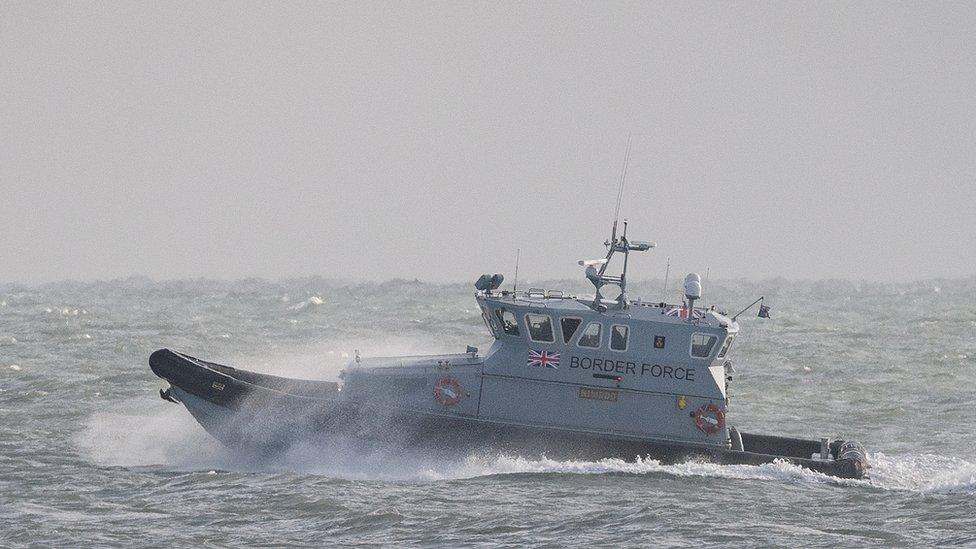
- Published3 September 2020

- Published2 September 2020
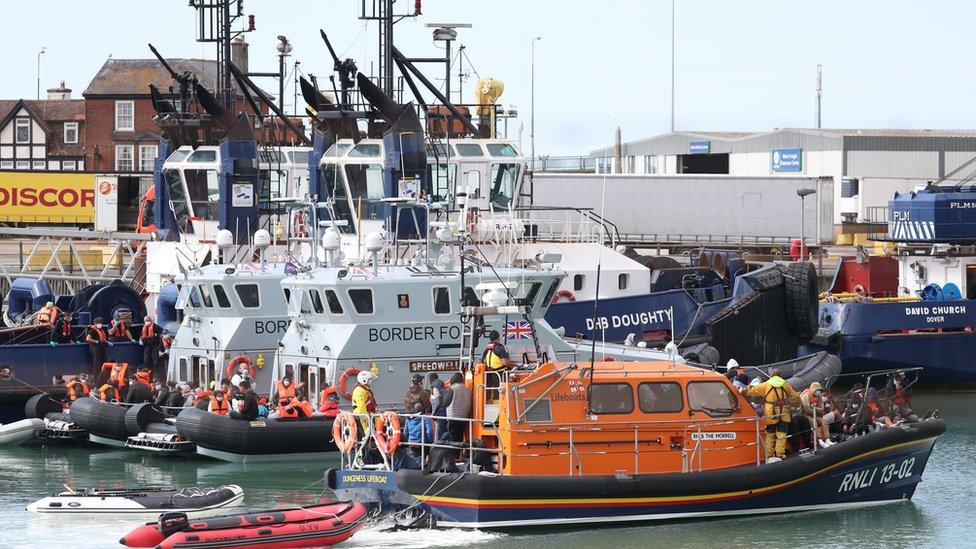
- Published17 August 2020
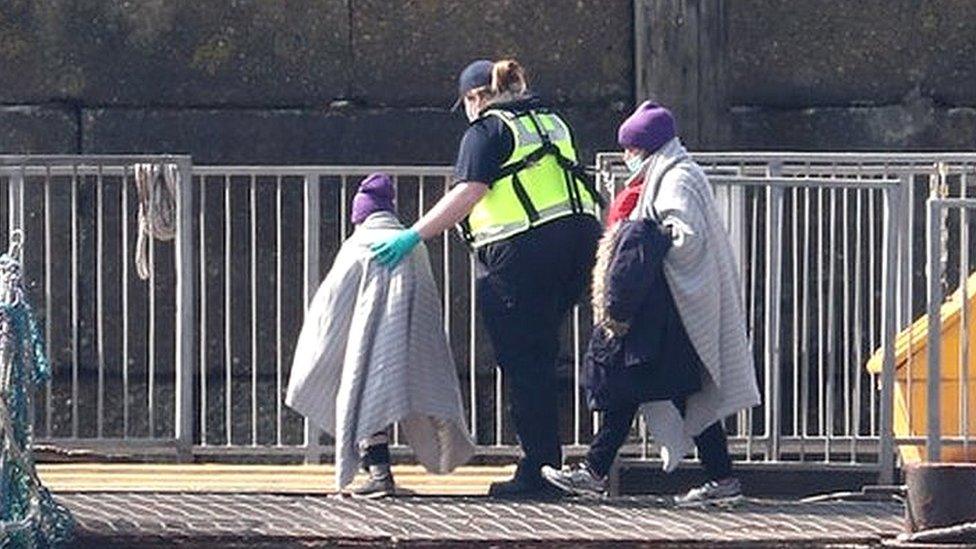
- Published7 August 2020
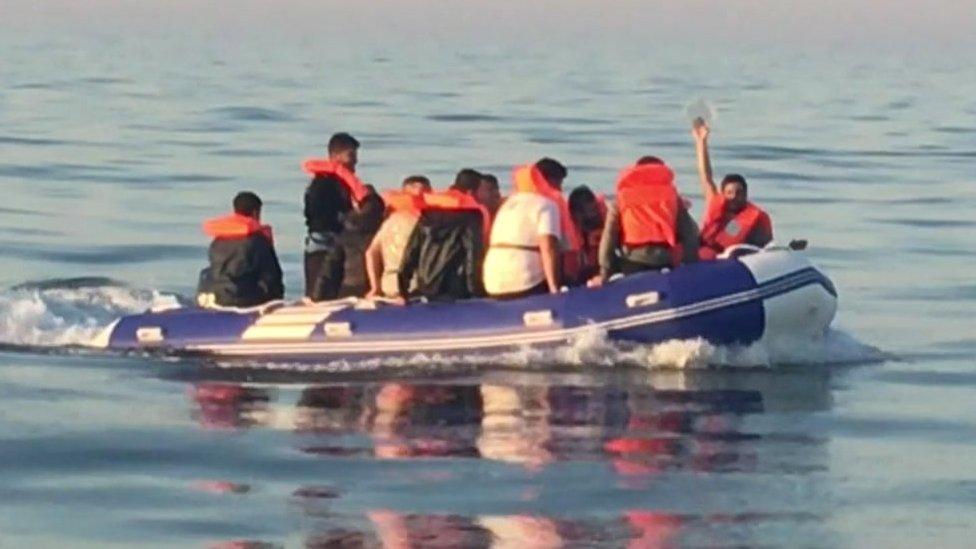
- Published18 May 2020
